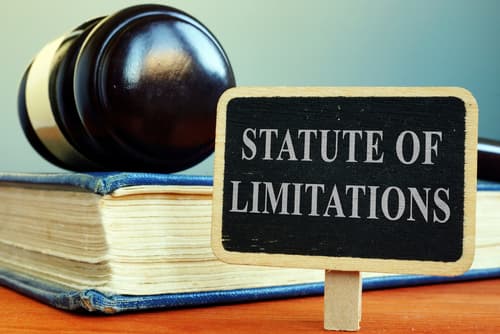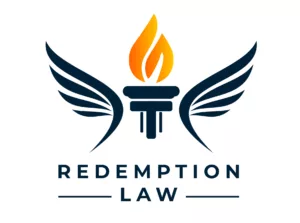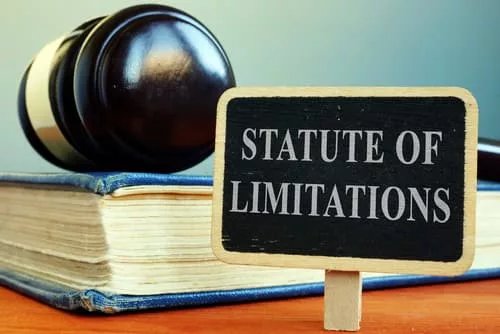Losing a loved one due to the negligence or carelessness of another person or entity can be a devastating experience. In addition to the immense grief, you may face medical bills, funeral expenses, and the financial burden that losing your loved one’s income and support may cause. One of the few legal options available is seeking compensation through a wrongful death claim.
You must, however, be aware that there is a legal time constraint, known as the statute of limitations, that dictates how much time you have to file a wrongful death lawsuit. Your wrongful death attorney will act as soon as possible and know how to navigate a wrongful death statute of limitations when filing your claim. This will protect your right to seek justice for your loved one.
Overview of Wrongful Death Claims
Wrongful death claims are legal actions that people bring to recover damages resulting from another party’s negligent or wrongful conduct. These claims aim to provide a sense of justice, hold responsible parties accountable, and ease the financial burden that the unexpected death of a loved one causes.

The plaintiffs and defendants involved in wrongful death claims may include:
- Surviving family members.
- The estate of the deceased.
- The responsible parties.
In most cases, the deceased person’s immediate family members, such as spouses, children, and parents, bring the wrongful death claim. In other instances, however, the personal representative of the deceased person’s estate may pursue a wrongful death claim to recover damages for the estate and its beneficiaries.
You file a wrongful death claim against the party or parties responsible for the death of your loved one. These may include individuals, companies, or even government entities. Your personal injury attorney works to identify and hold accountable all those who played a role in causing the wrongful death.
Do Wrongful Death Claims Always Go to Trial?
The number of wrongful death claims that go to trial varies depending on several factors, including the specific jurisdiction, the case’s circumstances, and the parties’ preferences. As with many legal cases, people often resolve wrongful death claims through settlements rather than trials.
Many parties settle wrongful death claims through negotiation and alternative dispute resolution methods, such as mediation or arbitration. These approaches often allow the parties involved to reach a resolution without the need for a trial. Settlements can benefit both sides, saving time, costs, and the emotional strain of litigation.
If the parties cannot settle, however, or if they heavily dispute liability, a wrongful death claim may proceed to trial. This means presenting the case before a judge or jury, who will decide on liability and the amount of compensation, if any, they will award. Trials are typically more time-consuming and expensive than settlements and involve a formal legal process.
Calling a qualified attorney can provide you with a better understanding of how your jurisdiction typically resolves these claims.
Collecting Damages in Wrongful Death Claims
Compensation in a wrongful death claim may vary depending on various factors, such as the jurisdiction, the circumstances of the case, and the applicable laws.
The courts can award damages for wrongful death claims to help compensate the deceased’s family for economic and emotional losses.
Economic losses are quantifiable financial losses that you incur due to the death.
They may include:
- Medical expenses.
- Funeral and burial costs.
- Lost income and benefits.
- Future financial support that the deceased would have provided to their dependents.
Emotional losses refer to intangible losses that are more challenging to assign a specific monetary value to.
Examples may include:
- Pain and suffering that the deceased experienced before their death.
- Loss of companionship.
- Emotional distress.
- The impact on the surviving family members’ quality of life.
In cases involving acts of intention, the court may also apply punitive damages intended to punish the responsible party and deter similar behavior in the future. Your lawyer may advise that you pursue these damages if the court deems the responsible party’s conduct particularly reckless, intentional, or egregious.
In addition to compensatory damages, the court may decide to award attorney fees and court costs in wrongful death cases. The purpose of these expenses is to help cover litigation costs to assist the prevailing party in pursuing justice for their loved one.
In determining the amount of damages to award in a wrongful death action, the court considers factors such as the age and occupation of the deceased, lost earnings and benefits, and the emotional losses that the survivors may experience.
Although you may not know how to place a monetary value on the emotional distress that the loss of a family member causes, your attorney can work with you to claim damages for the pain and suffering you and other surviving relatives may experience.
Statute of Limitations for Wrongful Death Claims
The statute of limitations determines the time frame within which you must file a lawsuit. Its primary purpose is to ensure that you bring a claim as soon as possible while evidence remains available and witnesses’ memories are fresh. Failing to file a claim within the specified time frame in wrongful death cases can result in losing the right to pursue compensation for your loss.
In some states, the statute of limitations for a wrongful death claim due to negligence is generally two years from the date of death. If the wrongful death claim is from an act of intention, the statute of limitations may be shorter.
You can file an intentional tort wrongful death claim when another person’s unlawful act leads to an individual’s death. Cases that involve wrongful conduct differ from negligence in that the person responsible for the death intended the harm they caused.
Examples of intentional wrongful conduct that may lead to a wrongful death claim include:
- Robbery
- Arson
- Sexual battery
- Kidnapping
- Carjacking
You can file this type of claim against the responsible party or the property owner where the action took place without evidence of an arrest, formal criminal charges, or conviction. Knowing the difference between negligence and acts of intention may influence how much time you have to file your wrongful death claim.
Filing your wrongful death claim within the appropriate statute of limitations period preserves your right to seek compensation. Failing to meet the deadline may result in the court dismissing your claim, leaving you without any legal recourse to hold the responsible parties accountable for their actions.
The Discovery Rule
The discovery rule is a legal principle that may affect the statute of limitations in certain wrongful death cases. Under this rule, the statute of limitations period begins not from the date of death but rather from when the surviving family members or the estate discovered, or should have discovered, the cause of the wrongful death. This rule is particularly relevant in cases where the negligent or wrongful act causing the death was not immediately apparent or discoverable.
When the discovery rule applies, the surviving family members or the estate have more time to file a wrongful death claim. The application of the discovery rule can be complex, however, so call an experienced personal injury attorney to determine whether this rule applies in your specific case and how it may affect the time frame for filing your claim.
Tolling of the Statute of Limitations
Tolling refers to the temporary suspension or delay of the statute of limitations, essentially pausing the clock for a certain period. The purpose of tolling is to address situations where it may be unfair or unreasonable to expect a claimant to file a wrongful death claim within the specified time frame.
Circumstances that May Lead to Tolling
Some state laws allow the tolling of the statute of limitations for wrongful death claims. There may be times when you cannot serve a defendant because their location is unknown. The circumstances that may lead to tolling can include the following:
- The defendant is absent from the state.
- The person you are suing is using a false name that is unknown.
- The defendant conceals themselves within the state and their location is unknown.
Some statute of limitations laws allow for tolling cases involving minors or incapacitated persons if parents or guardians who might sue on their behalf do not or cannot act or have an adverse interest. Even under these circumstances, however, the law may limit extended deadlines.
Influence on the Statute of Limitations
Tolling the statute of limitations extends the original time frame for filing a wrongful death claim, allowing the surviving family members or the estate additional time to pursue their case.
Understanding whether and when tolling applies can be challenging and requires the assistance of an experienced personal injury attorney familiar with the specific circumstances and jurisdictional rules.
Exceptions to the Statute of Limitations
In certain situations, the standard statute of limitations for wrongful death claims may not apply or may be subject to exceptions. Some of the most common exceptions involve jurisdictional exceptions or cases against government entities.
Government Entities
There may be different filing requirements and procedures when a wrongful death claim involves a government entity, such as a city, county, or state agency. These may include filing a formal notice of claim within a different time frame than the standard statute of limitations.
To file a personal injury, wrongful death, or property damage claim against some municipalities, for example, you have a specific time frame from the date of the accident to present a claim in writing to a particular government agency.
In some cases, a wrongful death claim against a government entity may be subject to a shorter statute of limitations than a claim against a private individual or company. The specific time limits and requirements depend on the jurisdiction and the applicable laws governing claims against government entities.
Other Specific Jurisdiction Exceptions
Each state has unique laws and rules for wrongful death claims and the applicable statute of limitations. Immediately call a personal injury attorney experienced in handling wrongful death cases in your specific jurisdiction to determine if any exceptions or special rules apply to your case.
The Role of Legal Representation in Wrongful Death Claims
Wrongful death cases can be complex and emotionally challenging for the surviving family members or the estate. An experienced personal injury attorney can navigate the intricacies of these cases, ensuring the collection of all relevant evidence and adherence to all legal requirements and deadlines.
One of the most critical aspects of a wrongful death claim is compliance with the statute of limitations. A skilled personal injury attorney will determine the appropriate time frame applicable in your specific case, taking into account any exceptions or special rules, and will file your claim promptly to preserve your right to compensation.
Your attorney will serve as your advocate throughout the wrongful death claim process, fighting on your behalf to hold the responsible parties accountable and to secure the maximum compensation possible for your loss. The process includes negotiating with insurance companies, presenting a compelling case in court if necessary, and providing compassionate support and guidance during a difficult time.
Engage an Attorney to Handle Your Wrongful Death Claim

Understanding the statute of limitations in wrongful death cases will effectively pursue compensation for your loss. Unfortunately, failing to file a claim within the specified time frame can result in losing the right to hold the responsible parties accountable and recover damages.
Filing your wrongful death claim within the appropriate statute of limitations period preserves your legal rights, increases the likelihood of a successful outcome, and helps ensure that your family can obtain the financial support necessary to move forward after your loss.
Given the complexities of wrongful death claims, the varying statutes of limitations, and the potential exceptions and special rules that may apply, call an experienced personal injury attorney as soon as possible following the loss of a loved one.
Related articles
Related articles Related articles Related articles Related articles Related articles Related articles Related articles Related articles Related articles Related articles
Personal Injury
02 Feb 2024
How Long After An Accident Can You Claim Injury?





